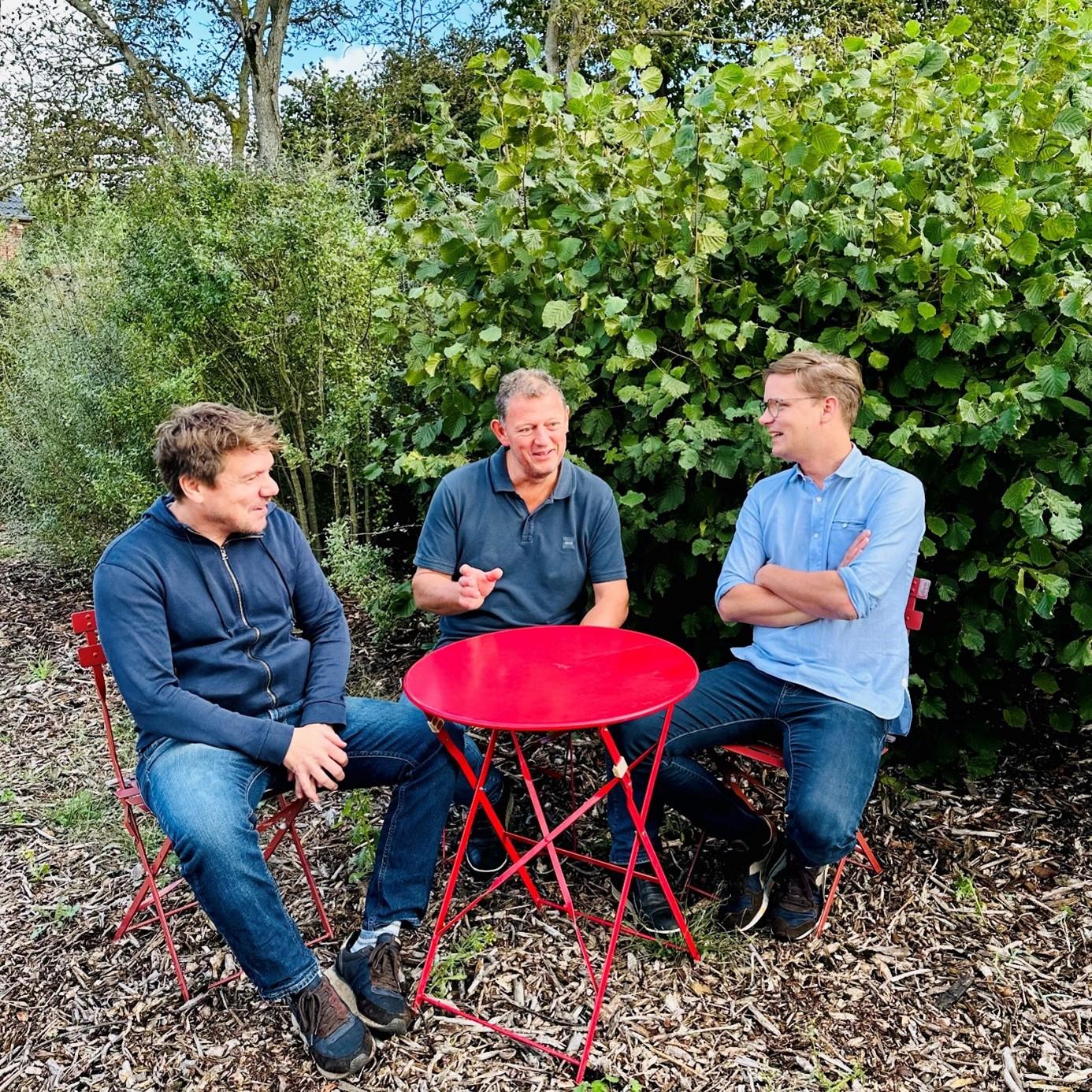Migino, Ranobo and Didess joined hands 2 years ago. Together they founded the MiRaDi partnership on nut processing. Together with Flanders' FOOD and VIVES and with the support of VLAIO, they developed an extensive product range with a focus on zero-waste. From mayo to croquette, discover MiRaDi's zero-waste nut buffet here.
The MiRaDi partnership
With help from Flanders' FOOD and support from VLAIO, the MiRaDi partnership was established in 2021. MiRaDi is an acronym for the companies Migino, Ranobo and Didess. These companies were brought together in a research and development project on nut processing. Their project ended at the end of June 2023, but the partnership continues the successful collaboration.
Migino is a producer of nut- and seed-based oils and pastes, among other products. Didess is a producer of bakery and decoration products that incorporate nuts. And wholesaler Ranobo is a producer of nuts, dried fruits and snack items.
The innovative partnership MiRaDi has developed an extensive nut-based product range with zero-waste in mind. Indeed, the three partners hold the fight against food waste in high regard.
Meet the companies in this video:
Preventing food waste starts at the harvest
Walnuts and hazelnuts are grown in Belgium. After harvest, you can store these nuts in shell for up to 2 years. A good storage environment that allows the nuts to dry is therefore essential to prevent mold growth.
With the help of VIVES University College and subcontractor Johan Erregat, the partners investigated different storage conditions. The water capacity value and moisture content turned out to be the most representative quality parameters for storage. Once you can dry the nuts to a certain threshold value for water capacity and moisture, they can be stored for a very long time while maintaining quality. That is, fat oxidation remains below the flavour and odour threshold. Preservation also reduces other unwanted flavour components, such as the bitter aftertaste of fresh walnuts.
Reaching the threshold for watercapacity and moisture is a requirement for further processing into e.g. oil, paste or seasoned nuts. It is possible to achieve these threshold values by air-drying the nuts.
If you want to process the nuts faster, drying technology can be used. For example, the drying process can be accelerated a lot by using microwave technology or by storing the nuts in a climate-controlled refrigerator with air circulation.
A tough nut to crack
After storage, the nuts are ready for processing, but they still need to be cracked. For this, the partners work with a bespoke company that cracks and sorts the nuts manually. This must be done carefully as no shell residue is allowed to remain.
In ideal circumstances, an optical sorting machine would be desirable. After all, manual cracking and sorting is very labour-intensive and therefore costly. Nevertheless, investing in an optical sorting machine is not an obvious choice either, as this technology is also expensive to buy. Moreover, nuts are only harvested in the autumn, so this machinery cannot operate year-round. Also, the acreage of hazelnuts and walnuts in Flanders today is limited. It is therefore difficult to be price-competitive with imported hazelnuts and walnuts in Flanders. A possible solution is to use the sorting machine for a wide range of nuts and seeds or to start new partnerships with other companies willing to co-invest in such technology. Both possibilities are being explored by partner Migino as part of follow-up projects.
From mayonnaise to croquette
After cracking the nut, it is ready for processing. With zero-waste in mind, the partners invested in new processing machinery. They also developed a flow between the 3 companies to enable total nut valorisation. Indeed, with the new machinery, they can dry-roast nuts, roll them to a desired particle size or roll them into nut paste and press them via extrusion into high-quality oil. In this way, there is always an application for every nut quality category.
To tailor product development to their customers' needs, the partners organised co-creation sessions with consumers, retail, food service and food industry, as well as with schools and care institutions. These sessions were a success and led to many new product ideas. For setting up these sessions, they received help from subcontractor Melbs, which was trained via Flanders' FOOD.
Some examples:
- A bake-proof spread for viennoiserie
- Chips made from nut press cookie
- A sausage with veal, white cabbage and hazelnuts
- A mayonnaise with almond paste
- A croquette filled with nut paste
- A zero-waste biscuit
Products that fit within their existing range will be marketed by the partners under their own brand and others through connections in their network. For example, the zero-waste biscuit has already been launched. This biscuit varies in composition depending on which nut and dough residues are in surplus.
Fancy tasting these products?
Follow the partners' innovative range closely via their website:
Migino: Assortment (migino.be)
Ranobo: An extensive range for the retail sector - Ranobo
Didess: Products - Didess
Or feel free to get in touch:
Migino: Peter De Rycke - peter@migino.be
Ranobo: Gilles Jeuris - gilles@ranobo.be
Didess: Dirk Peeters - dirk@didess.com






